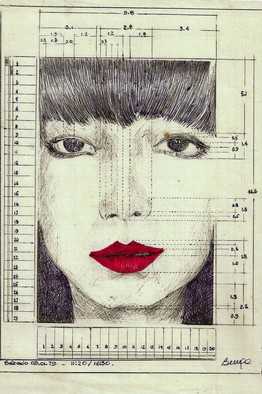A Lively Art Scene Aids Istanbul’s Biennial

Istanbul’s art scene is mushrooming, aided by the recent openings of nonprofit art spaces like Garanti Bank’s Salt, Vehbi Koç Foundation’s Arter-Space for Art and Borusan Holding’s ArtCenter Istanbul. Their arrival may give a boost to a longtime also-ran in the art-biennial pack—the Istanbul Biennial, an exhibition of contemporary art that opens Saturday and runs through Nov. 13 at the Antrepo warehouses.
Biennials typically serve as breakout moments for hot young artists, but biennial co-curator Adriano Pedrosa and collaborator Jens Hoffman said they scoured for older, overlooked artists whose works may still feel revelatory. Case in point: Teresa Burga, a Peruvian artist who compiled a self-portrait from drawings and a sheaf of medical records.
Much of the art is bundled into five group shows; each takes its theme from a work of art created by Félix González-Torres, a Cuban sculptor known for using everyday items like candies and light bulbs to confront personal and societal woes like AIDS.
One of the group shows explores themes of sexuality and includes portraits by photographer Catherine Opie. Another centers on migration, identity and border controls, includes Claudia Andujar’s photographs of obscure, indigenous Brazilians who don’t, by custom, adopt individual names. (Ms. Andujar identifies their portraits by number.)
Other rediscoveries include Geta Brătescu, an 85-year-old Romanian artist who makes geometric collages from rags, and Turkish photographer Yçldçz Moran Arun, deemed a maverick in the 1960s because she crisscrossed the country documenting the lives of women at a time when few local women traveled solo. Mr. Pedrosa said he was impressed when he uncovered her images in the archives of a local university. “It feels like new material,” he said.
Collectors on the hunt for young Turks will do better to canvass the galleries popping up in industrial spaces along the banks of the Bosphorus in the Beyoğlu district. One of the biggest, Galeri Manâ, is showing Nasan Tur, a Berlin-based artist of Turkish descent. Tur’s works include “Kapital,” a trio of papier-mâché sheets he made by shredding leather-bound copies of Karl Marx’s manifesto, “Das Kapital,” into a pulpy stew. Hanging nearby is “Once Upon a Time,” his collection of eight huge flags representing countries that don’t exist anymore, like Yugoslavia.
Other Biennial-related highlights include Bertrand Ivanoff’s neon installations on the old Orthodox Palestinian Christian Church and Johan Tahon’s milky ceramic figures set in a 15th-century tiled kiosk in walls of the Topkapi Palace.
—Kelly Crow
via A Lively Art Scene Aids Istanbul’s Biennial – WSJ.com.